Our children are being failed by the condition of their school
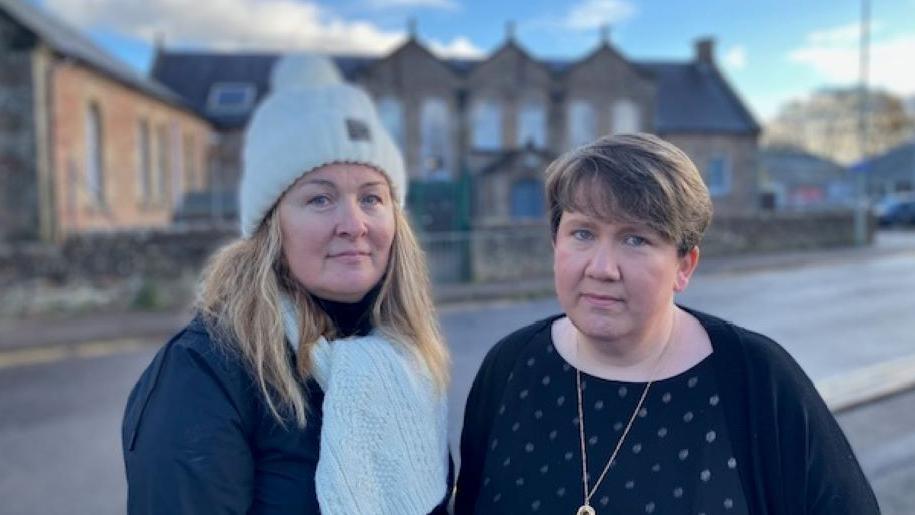
Mums Avril Robertson, left, and Lorraine MacLean said St Clement's pupils and "exemplary" staff were being failed by poor facilities
- Published
Parents have told of their despair at the state of their children's special school - and their 20-year battle for a replacement building.
St Clement's in Dingwall provides education for three to 18-year-olds, with pupils receiving additional needs support for physical disabilities and neurological conditions.
Part of the school is more than 100 years old, and has corridors and doorways not fit for wheelchairs.
Parents said St Clement's also lacked teachers for some subjects, and pupils had to go to a nearby park for PE because there was not a dedicated games hall.
Highland Council approved plans for a new £13m school in 2021, but last month was unsuccessful in securing Scottish government funding to progress the project.
The Scottish government said the local authority had benefited from previous rounds of funding.
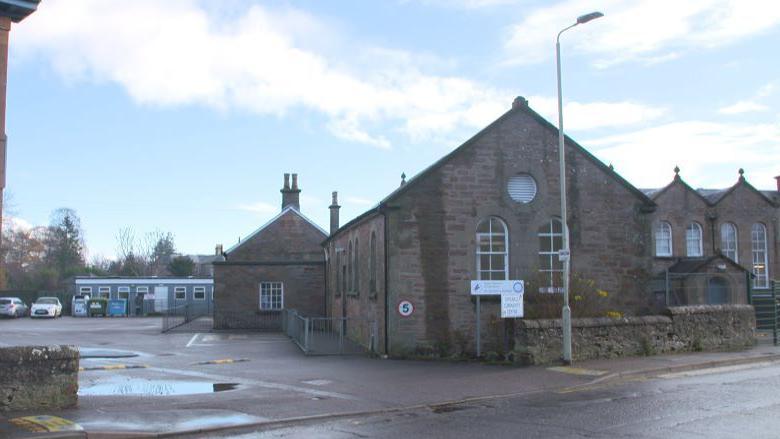
The oldest part of St Clement's School is more than 100 years old
St Clement's has a roll of about 50 children, mostly from Easter Ross but some travel in from the Inverness area, about 15 miles away.
Mum Avril Robertson, whose 13-year-old son has autism and a genetic condition, said children - along with the school's "exemplary" staff - were being failed by the poor state of St Clement's older building.
She has been campaigning for a purpose-built school since her son was five, but said there had been calls for a new building going back at least nine or 10 years before that.
Ms Robertson said: "In the older part of the school I have witnessed the problems people have had manoeuvring wheelchairs through doorways from one room to another because the threshold is too high, or there is not enough space to get round.
"There are no break-out rooms in the old building for people with additional support needs if they need time away from the main class.
"Windows don't open or close, there are sometimes problems with the heating system and because of the high ceilings it can be cold some days and hot others."
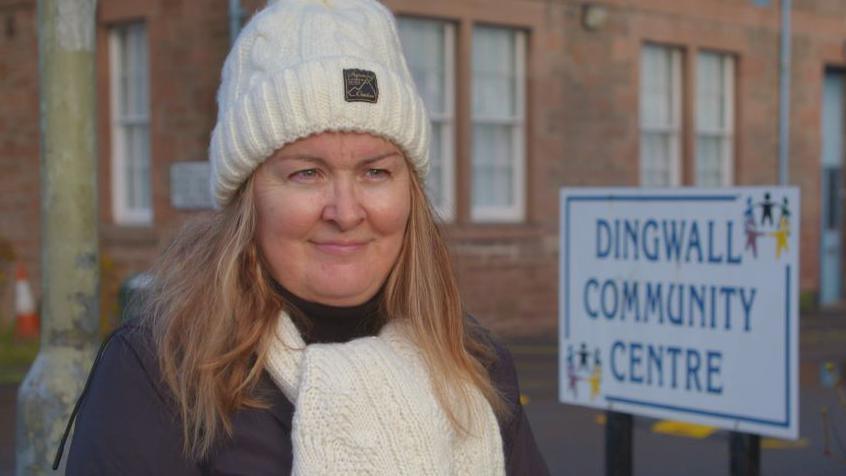
Avril Robertson said parents had long been calling for a new school
Ms Robertson added: "The curriculum is obviously different, but, saying that, there is no science department, there is no designated PE hall, there is no PE teacher.
"These things are a given in mainstream education.
"That luxury is not afforded here in St Clements."
Lorraine MacLean, whose S4 pupil son has autism and a rare genetic disorder that affects his muscles and causes pain in his legs, said parents' hopes of a new school had been raised and dashed over the years.
"Every time we feel we've got somewhere we're knocked back," she said.
"We have had actual plans made for another building, but there was no outside space.
"It's just the crumbs," she said of the offers of improvements made so far.
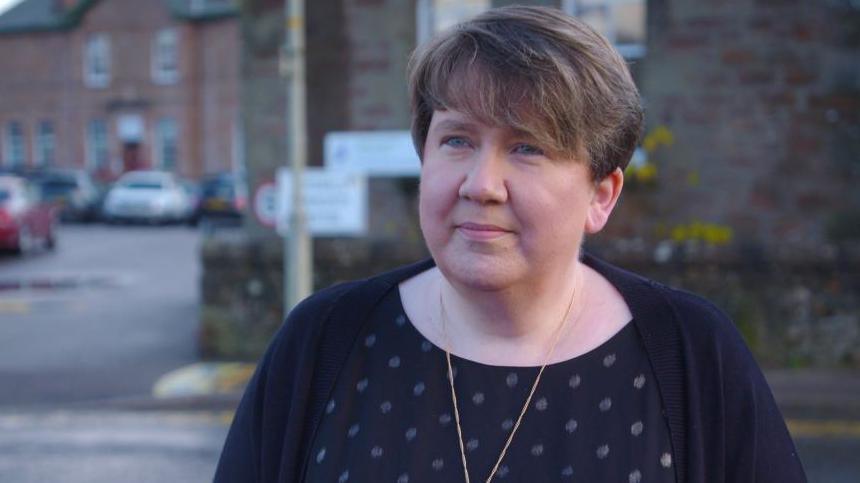
Lorraine MacLean said her son would not see the benefit of a new school by the time one was built
Ms MacLean said the most recent example had involved an area of land behind the school, which parents were told was unsuitable for a school building. It is now being developed for a large shop.
She said: "I know we are not the only ones with a poor building that is crumbling.
"But the main issue I have is that they have no facilities - no music, no home economics, they have to go to the local park for their PE sessions."
Ms MacLean added: "There is no hope my son is going to see a new school. They've [Highland Council] failed him.
"But I will keep campaigning for the children that come behind him."
She said the school was lucky for the support it received from the local community, including use of local football club Ross County FC's facilities, and some pupils having access to science lessons at Dingwall Academy.
The mums said it had been suggested previously that St Clement's could be part of a new campus with other schools, but they said a purpose-built, stand alone school was needed.
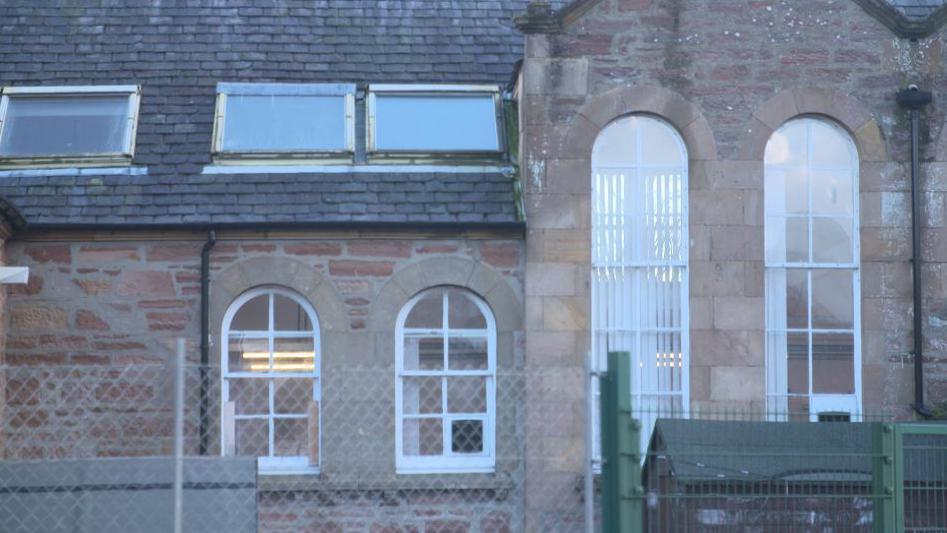
Highland Council had sought funding for a new school
According to Highland Council, 68 of its more than 200 schools have been rated to be in a poor condition and 74 rated as being of poor suitability.
It made a series of bids for funding from the Scottish government's latest Learning Estate Investment Programme (LEIP), external, including a bid involving new Beauly, Dunvegan and Park primaries and a separate bid for St Clement's.
Highland Council said not being able to secure the support was "devastating for communities desperate for new schools", external.
It has written to the Scottish government asking for further discussions on its sub-standard school buildings.
The local authority said a replacement for St Clement's remained part of its long-term capital programme, and it intended to complete the purchase of an area of land in the current financial year.
The land would be kept until the time came when a new school could be built.
'Fairly and equitably'
The council said the site directly behind St Clement's was ruled out mainly due to Scottish Environment Protection Agency (Sepa) flood risk criteria.
A spokeswoman said: "Sepa classifies flood risk depending on the proposed land use.
"Schools are classified in the most vulnerable category and therefore certain types of land that are deemed unsuitable for school builds can be developed for other uses that fall into a less vulnerable category."
The Scottish government said it was local authorities' statutory responsibility to manage and maintain their school estates.
A spokesperson said: "Scottish government investment is intended to supplement this, not replace it.
“Phase three of LEIP supports a priority project in those local authorities who have not yet benefited from LEIP and, therefore, treats all councils fairly and equitably.
"Highland Council is receiving financial support from phases one and two of LEIP for the Broadford Primary School, Nairn Academy and Tain 3-18 Campus projects."
The spokesperson said Education Secretary Jenny Gilruth had received the council's letter asking for further engagement and would respond in due course.
Funding failure hits historic school upgrade
- Published1 November 2023
Do you have an idea for a story we could cover? Email our local reporters in the Highlands and Islands via: steven.mckenzie@bbc.co.uk, external.